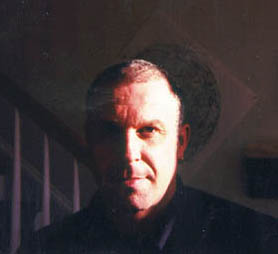
The Myth of Chimeral Evolution
by
Justice Putnam
Darwin, Berkeley and Nietzsche were traversing through the primordial soup when a Booming Voice echoed throughout the world,
"Ha! Ha! Ha!" the Booming Voice joyously announced, for He was a joyous and happy Booming Voice, "so you have quite a conundrum before you now!"
Berkeley, as was his manner, nudged ahead of Nietzsche and announced,
"I know or am conscious of my own being; and that I myself am not my ideas, but somewhat else, a thinking, active principle that perceives, knows, wills and operates about ideas. I know that I, one and the same self, perceive both colors and sounds: that a color cannot perceive a sound, nor a sound a color: that I am therefore one individual principle, distinct from color and sound; and, for the same reason, from all other sensible things and inert ideas. But, I am not in like manner conscious either of the existence or essence of Matter. On the contrary, I know that nothing inconsistent can exist, and that the existence of matter implies an inconsistency. Further, I know what I mean when I affirm that there is a spiritual substance or support of ideas, that is, that a spirit knows and perceives ideas. But, I do not know what is meant when it is said that an unperceiving substance hath inherent in it and supports either ideas or the archetypes of ideas. There is therefore upon the whole no parity of case between Spirit and Matter."
Not to be outdone, Nietzsche elbowed his way past Darwin and Berkeley to his preordained spot,
"With the highest respect, I accept the name of Heraclitus. When the rest of the philosophic folk rejected the testimony of the senses because they showed multiplicity and change, he rejected their testimony because they showed things as if they had permanence and unity. Heraclitus too did the senses an injustice. They lie neither in the way the Eleatics believed, nor as he believed--they do not lie at all. What we make of their testimony, that alone introduces lies; for example, the lie of unity, the lie of thinghood, of substance, of permanence. "Reason" is the cause of our falsification of the testimony of the senses. Insofar as the senses show becoming, passing away, and change, they do not lie. But Heraclitus will remain eternally right with his assertion that being is an empty fiction. The "apparent" world is the only one: the "true" world is merely added by a lie."
Darwin strode forward in a gentlemanly manner, cleared his throat and began,
"As man can produce and certainly has produced a great result by his methodical and unconscious means of selection, what may not nature effect? Man can act only on external and visible characters: nature cares nothing for appearances, except in so far as they may be useful to any being. She can act on every internal organ, on every shade of constitutional difference, on the whole machinery of life. Man selects only for his own good; Nature only for that of the being which she tends. Every selected character is fully exercised by her; and the being is placed under well-suited conditions of life. Man keeps the natives of many climates in the same country; he seldom exercises each selected character in some peculiar and fitting manner; he feeds a long and a short beaked pigeon on the same food; he does not exercise a long-backed or long-legged quadruped in any peculiar manner; he exposes sheep with long and short wool to the same climate. He does not allow the most vigorous males to struggle for the females. He does not rigidly destroy all inferior animals, but protects during each varying season, as far as lies in his power, all his productions. He often begins his selection by some half-monstrous form; or at least by some modification prominent enough to catch his eye, or to be plainly useful to him. Under nature, the slightest difference of structure or constitution may well turn the nicely-balanced scale in the struggle for life, and so be preserved. How fleeting are the wishes and efforts of man! how short his time! and consequently how poor will his products be, compared with those accumulated by nature during whole geological periods. Can we wonder, then, that nature's productions should be far 'truer' in character than man's productions; that they should be infinitely better adapted to the most complex conditions of life, and should plainly bear the stamp of far higher workmanship?"
"Ha! Ha! Ha!" the Booming Voice joyously continued, "if it were not for your Minds, I would almost doubt my own existence!"
Sources:
"Three Dialogues Between Hylas and Philonous" --George Berkeley
"Twilight of the Idols"--Friedrich Nietzsche
"The Origin of Species"--Charles Darwin
from “The Nature of Poetics Collapsed Outside My Window”
© 2006 Justice Putnam
and Mechanisches Strophe-Verlagswesen

No comments:
Post a Comment